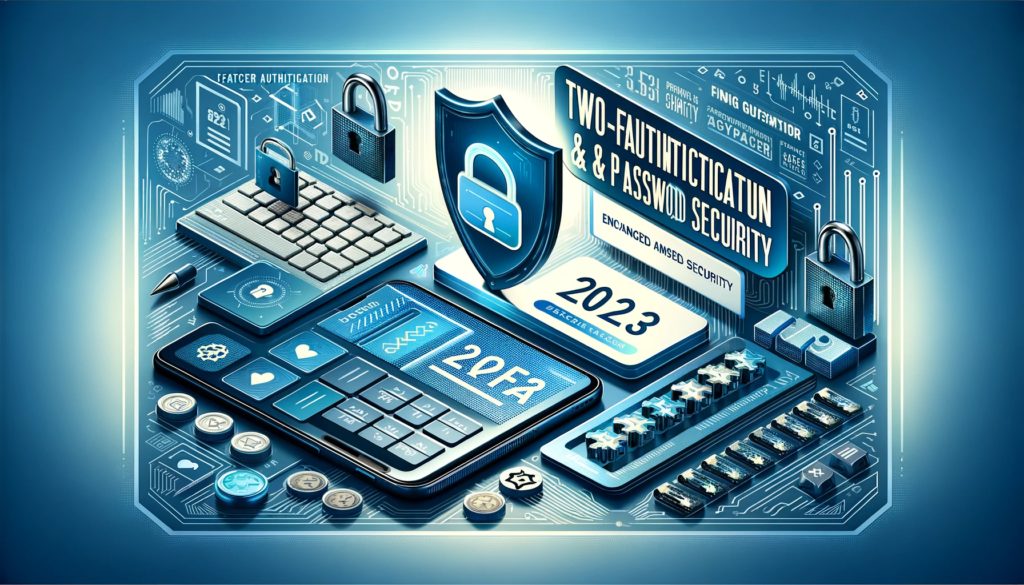
Two-Factor Authentication (2FA) and password security are vital elements in protecting online accounts and sensitive information from cyber threats. Let’s dive into an in-depth exploration of these two crucial aspects of cybersecurity.
Two-Factor Authentication (2FA)
Importance
2FA is critical for enhancing online security. It guards against hacking, identity theft, and data breaches, which are common with password-protected accounts alone. By requiring a second form of verification, 2FA significantly reduces the risk of unauthorized access and account takeovers.
Types of 2FA
- SMS Authentication: Users receive a code on their phone.
- Push Notifications: Users get a message to approve for login.
- Mobile Apps: These generate a code for the user.
- Biometric Authentication: Utilizes physical traits like fingerprints or facial recognition.
- Hardware Tokens: Provide a code for authentication.
- Voice/Video Authentication: Involves phone calls or live video streams for identity verification.
Each method has its strengths and is suitable for different scenarios. For instance, SMS works well in areas with poor internet, while biometrics offer convenience for quick logins.
Implementation
Organizations, especially startups and large enterprises, can leverage multichannel CPaaS (Communications Platform as a Service) for implementing 2FA. This approach allows for a customized, cost-effective, and secure setup, meeting specific business needs.
Password Security
Best Practices
- Minimum Length: Passwords should be at least eight characters long. Longer passwords are more secure than complex shorter ones.
- Visibility Option: Allowing users to see the passwords they type reduces errors and encourages stronger password creation.
- Failed Attempts Limit: Limiting the number of incorrect attempts and using CAPTCHA can prevent automated hacking attempts.
- Combination with 2FA: Using passwords alongside 2FA offers an extra layer of security.
- Infrequent Resets: Frequent password changes can lead to weaker passwords. Businesses are advised to avoid this practice.
- Copy-Paste Functionality: Allowing password pasting can improve security by reducing errors.
Tips for Users
- Passphrases: Longer passphrases (8-16 characters) are more secure and easier to remember.
- Avoid Dictionary Words: Simple words and sequences are easier to crack. Creativity in password creation is recommended.
- Avoid Names: Passwords containing common names are easier to hack.
- Unique Passwords: Avoid using the same password across multiple accounts to prevent widespread access in case of a breach.
- Password Managers: These tools store and manage complex passwords, reducing the burden on users and enhancing security.
While advancements in cybersecurity are gradually phasing out traditional passwords, they remain a critical component of digital security. Combining robust password practices with 2FA creates a formidable defense against cyber threats, ensuring the protection of personal and financial information in the digital realm
2FA and strong password hygiene forms a comprehensive approach to cybersecurity. It is imperative for individuals and organizations alike to adopt these practices to safeguard against the ever-evolving landscape of cyber threats.